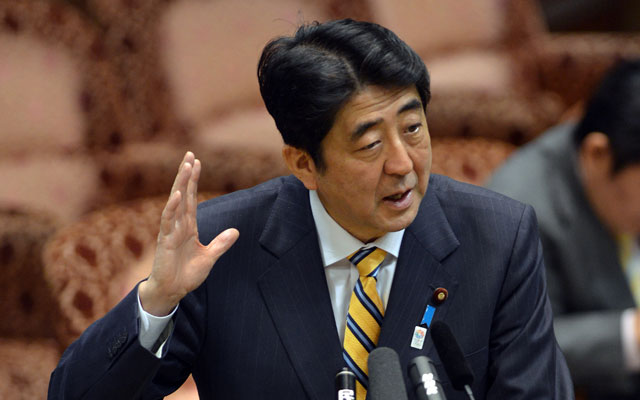Prime Minister Shinzo Abe is likely to increase Japan’s sales tax from 5 percent to 8 percent next year.
Abe and his close ally Haruhiko Kuroda, head of the Bank of Japan, have long advocated for increasing Japan’s money supply by targeting a higher inflation rate in an attempt to jump-start Japan’s zombie economy. The goal of 2 percent inflation is an attempt to increase the price of goods purchased, thereby increasing private-sector revenue. This, in turn, is supposed to incentivize companies to increase wages, allowing workers (consumers) to purchase higher priced goods.
Abe and Kuroda’s plan seems to be only spurring price increases without the wage increases to match. Though firms have increased bonuses this year, bonuses are as temporary to household budgets as stimuli are to the economy.
The Wall Street Journal recently showed how Japanese consumers were already “unimpressed” with the inflated price increases of goods such as food and gasoline. Though a recent Asahi poll shows that public opinion has grown in support of the sales tax increase, a majority of firms have shown their distaste for it.
Consumers certainly won’t be happy when a 3 percent increase in sales tax will be tacked onto price tags, no matter how much they may be in favor of it now. Luckily for most Japanese, businesses that have pretty inelastic prices on goods will be picking up the tab on the tax increase just to keep customers happy. Of course, this will further delay the increase of wages in those industries, since now business will have to offset decreased revenue.
In the end, Japan’s goal of increasing inflation seems counterproductive. Kuroda has already made clear that he has no problem increasing the money supply to reach 2 percent inflation. And Abe has noted that he is preparing another stimulus package of $50 billion to counter any initial negative impacts from the tax increase. As Japanese economist Kosuke Motani mentioned at a recent Heritage event, Abe will be collecting taxes just to turn around and spend it.
Ironically, the proposed tax increase was meant to curb the debt brought on by the numerous stimulus packages Japan has implemented since its economic bubble burst in 1991, such as Abe’s $116 billion stimulus package from January. The Japanese should set their sights more on curbing government spending instead of taxing anemic sales. But for now, it seems officials have been blinded by the sight of short-term gains to gross domestic product and hosting the Tokyo Olympics in 2020. In their minds, in the long run, we are all dead.























